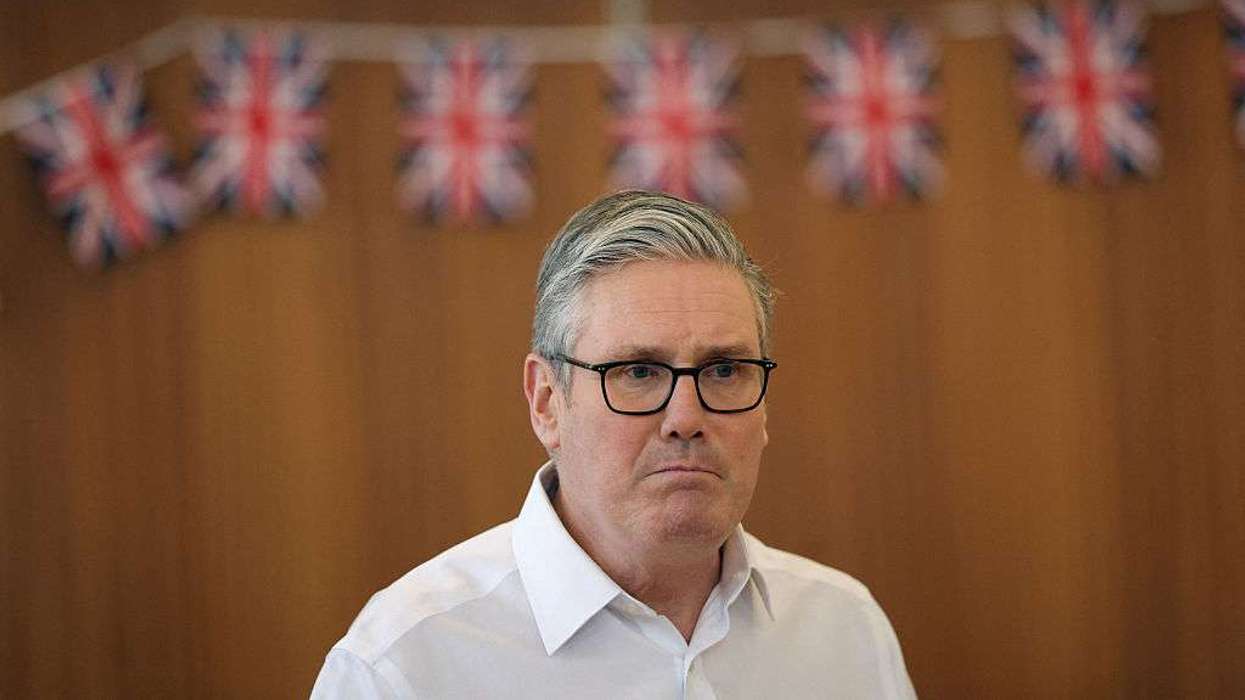THERE is a need for a radical shift in how social challenges are tackled in Britain, according to a new report.
The Centre for Social Justice (CSJ) thinktank has proposed a significant change in strategy, suggesting a shift in power from the central government to local communities.
This “decentralisation” move would allow local groups to address social issues more effectively, building on strong, trusted relationships within their own areas, the report, titled United Nation: How to Fix Broken Britain, published last week, pointed out.
It is a continuation of the Two Nations report by CSJ published in December 2023, which revealed a widening gap between those who can get by and those stuck at the bottom.
The latest report – backed by a diverse and influential group of commissioners, including former Tory leader Sir Iain Duncan Smith, disability minister Sir Stephen Timms, and the Labour mayor of Greater Manchester, Andy Burnham – highlights the need for a communitybased approach to social justice.
Britain’s current centralised model of governance is “insufficient to meet the complex needs of disadvantaged communities”, according to the report. It added that empowering local authorities, charities, and community groups to lead in areas like employment support, family services, policing, and youth development can help effect change.
The CSJ proposed devolving £6 billion of employment support and adult education to local authorities, arguing that they are better positioned to match job seekers with opportunities in their regions.
The report criticised the government’s tendency to centralise power and control from Whitehall, arguing that such an approach cannot address the root causes of social problems. By giving local communities the tools and authority to develop solutions tailored to their needs, the report suggested that more sustainable and impactful change can be achieved.
It added, “By prioritising local solutions and fostering deeper relationships within communities, the report envisions a future where power is more evenly distributed and where local voices play a central role in shaping policies. The emphasis is on building stronger, more stable communities that are better equipped to support themselves and thrive.”
The report identified several social issues like the growing number of children raised in single-parent households and the increasing reliance on state support.
It highlighted the public’s concerns about law and order and the need for visible neighbourhood policing.
To address them, the report recommended restoring neighbourhood police officer numbers to 2017 levels and creating community-focused sentencing options like the ‘Intensive Control and Rehabilitation Order’ (ICRO) for adult offenders.
The report also called for more investment in youth services and family support, urging the government to expand the network of family hubs across the country. These could be funded in partnership with local philanthropists, and can provide support to families, offering parenting advice and childcare. Introducing a ‘family credit’ to give households more flexibility in choosing childcare options, was another suggestion.
“The Treasury should implement a family credit to provide families with greater choice and flexibility regarding childcare options. Current family policies tend to focus primarily on mothers and children, overlooking the important role of fathers in a child’s development.
“Introducing a range of measures to involve fathers more actively could improve outcomes for children. These could include enhancing paternity leave, making fathers’ signatures mandatory on birth registrations, and offering parental preparation courses,” the report said.
Public services could be reformed by fostering partnerships between government, the private sector, and civil society, the report said. For instance, it suggested the government could provide funding for family hubs set up by charities or work with philanthropists to support youth services. This approach would not only decentralise power but also create a more collaborative framework for addressing issues such as housing shortages, family instability, and youth disengagement.
According to the report, too many people are trapped in welfare due to the lack of better options and a more local-led approach to employment support could help break this cycle.
The report also proposed a learning and skills tax rebate for employers who invest in training workers, to make the job market more accessible and rewarding.
Covid lockdowns took away vital years from the childhoods of many disadvantaged young people, the report said. This impact continues today, with 140,000 children missing more school than they attend. There is also a rise in mental health issues and a generation now feels unprepared for the future.
“The Department for Education should extend the school day by an hour, adding five extra hours each week for enrichment activities led by community groups, including outdoor programmes. This would ensure that every state-educated secondary school child has a ‘Right to Sport,’ with a minimum of two hours of sports and outdoor education weekly, helping to close the ‘activity gap’ and spread the benefits of physical activity to more students,” the report said.
“Youth services, which offer support to young people, have experienced inconsistent funding in recent years. To secure their future, a National Youth Legacy Endowment should be created, funded by the Department for Media, Culture, and Sport and matched by philanthropists.”
It added, “Furthermore, the government must prioritise resolving the school attendance crisis by implementing a national rollout of attendance mentors and developing a strategy to increase parental involvement, aimed at addressing the root causes of school absences.”
Former Sunday Times editor Martin Ivens, former Bank of England governor Lord King and former Tory MP Miriam Cates also contributed to the report.




